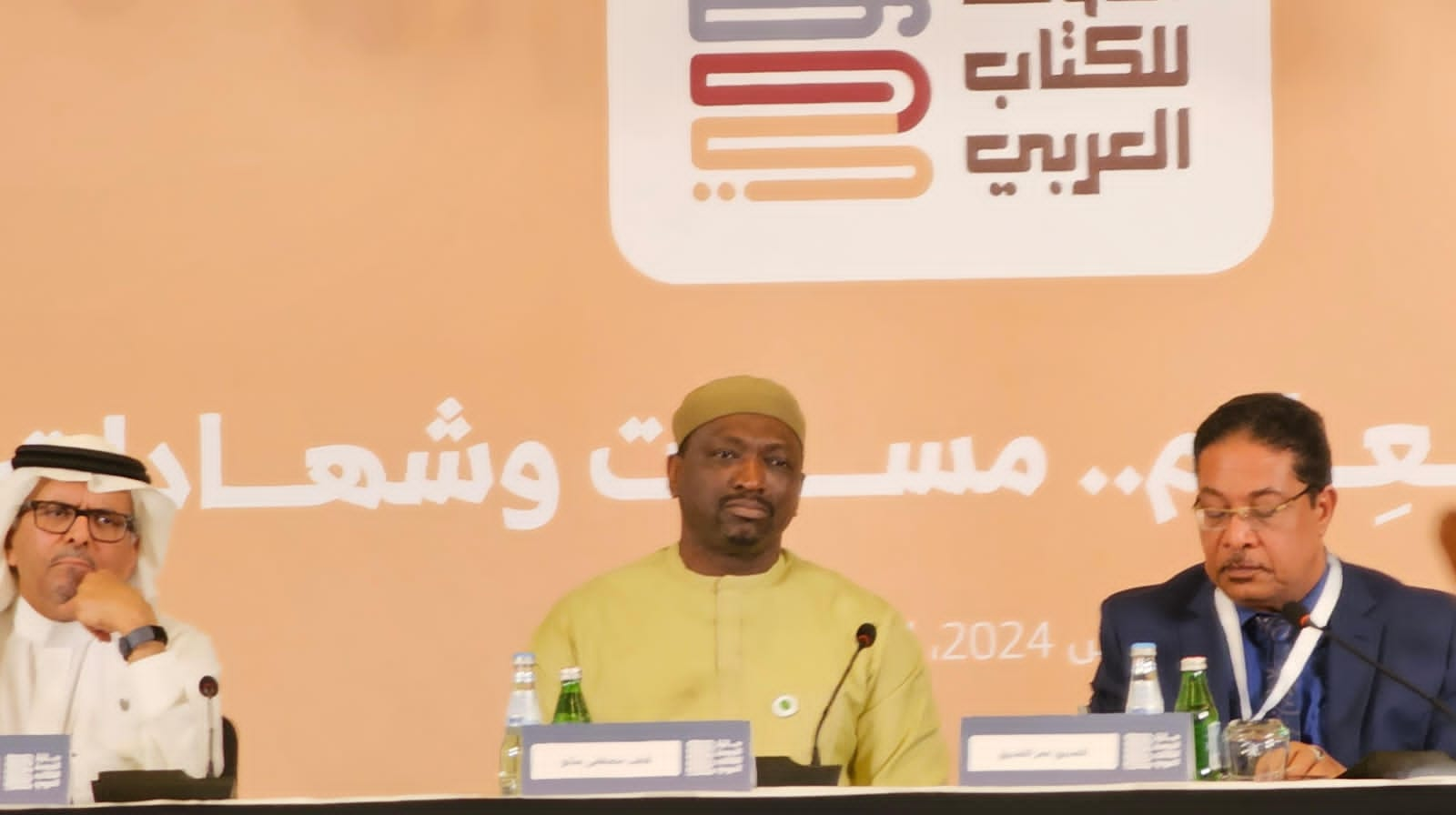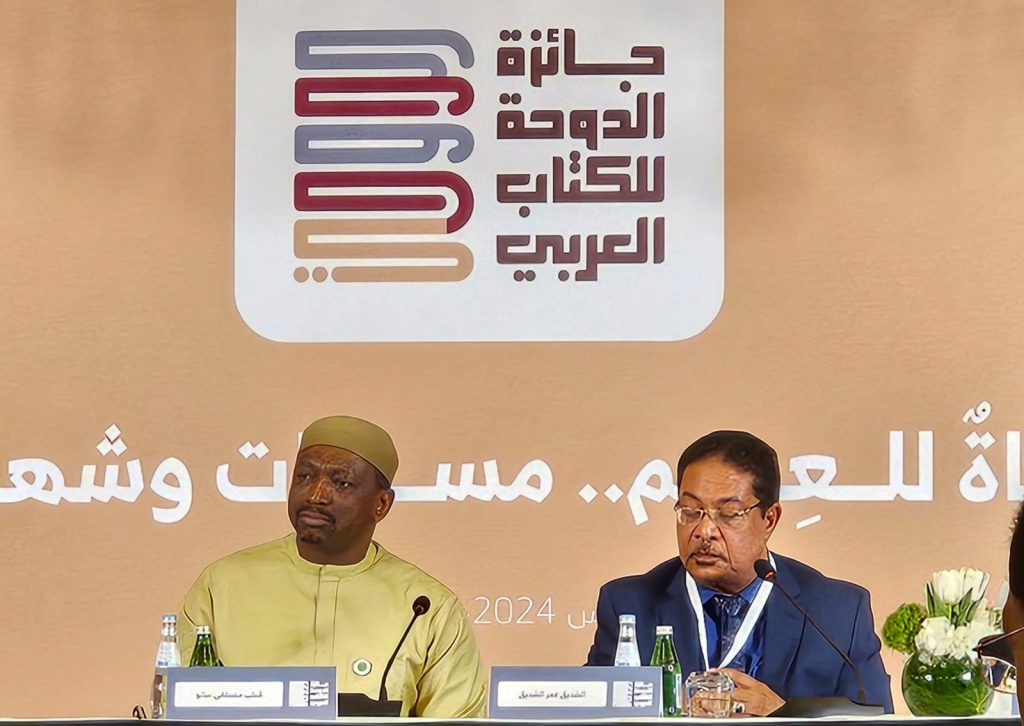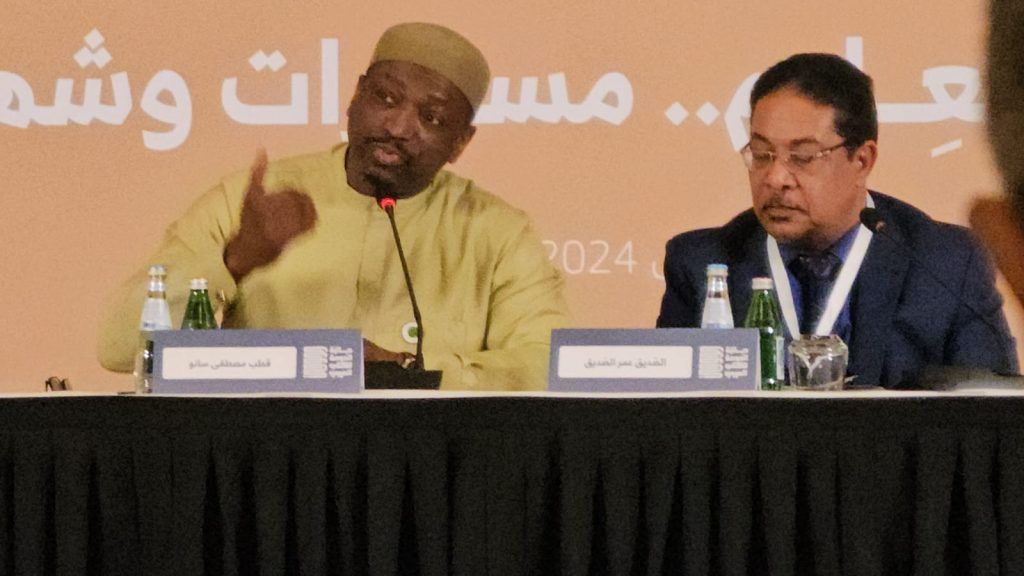
The Doha Arabic Book Award organized a scientific seminar entitled “A Life for Science…Journeys and Testimonies” on Sunday, 22 Sha’ban 1445, corresponding to 3 March 2024. The winners of the inaugural Doha Arabic Book Award spoke about their scientific careers, relationship with writing, and authorship as the most important topics covered in their writings during the past decades.
The ceremony was opened by Mr. Abdulrahman Al-Marri, Media Advisor of the Doha Book Prize, who delivered a speech on this occasion in which he noted that “the Prize aspires to restore the necessary appreciation of Arab culture and its value, which would enhance the sense of sincerity, loyalty, and responsibility towards the Arabic language and promoting it.” He pointed out that the award “comes in light of the many challenges of science among the peoples and civilizations of the world, in which languages have entered as cultural vessels in a race to produce original ideas and gain the upper hand in various fields of knowledge.”
Dr. Abdulwahid Allami, Executive Director of the Award, delivered a speech in which he spoke about the Award’s objectives, which include appreciating the efforts of researchers, recognizing their scientific, intellectual and cognitive achievements, encouraging individuals and institutions to provide the best knowledge on the social and human sciences, honoring genuine studies, vulgarizing them, praising the efforts of their authors, and supporting leading publishing houses to improve the quality of the Arabic book in form and content.
Dr. Sedina Sadati moderated the first session of the ceremony, in which the Egyptian Azharite linguist Prof. Muhammad bin Muhammad Hasnain Abu Musa, a member of Al-Azhar’s Council of Senior Scholars, spoke about some of his journey with Arabic eloquence. Additionally, the well-known Moroccan philosopher Taha Abdel Rahman talked about the profound motives that led him to write on philosophy and ethics; the Algerian historian Prof. Nasser Eddine Saidouni told his scientific journey in the study of history; and the Lebanese researcher Gerard Gehami spoke about his scientific career centered on philosophy.
After a short break, Prof. Al-Siddiq Omar Al-Siddiq moderated the second session of the ceremony, in which the Qatari historian Prof. Dr. Mustafa Aqeel Al-Khatib spoke about his shift in his interests towards history, especially history in the Arabian Gulf, and the well-known Egyptian investigator and historian Prof. Ayman Fouad Sayed talked about his interest in historical studies and his experiences with manuscripts. Prof. Fihaa Abdul Hadi, a historian and researcher in Palestinian oral history, spoke about Palestinian women’s essential role in the ongoing liberation struggle since the occupation. The well-known Saudi academic Prof. Saad bin Abdulrahman Al-Bazai spoke about his first memories of the book, especially after his return from the United States, where he was introduced to different schools of criticism and crowned this knowledge with a systematic and critical vision towards non-Arab cultural products.
H.E. Prof. Koutoub Moustapha Sano concluded the second session with a keynote summarizing his journey in the acquisition of linguistic and religious sciences, starting with the scientific courses he frequented from a young age in his country, Guinea, his studies in Saudi Arabia and Tunisia, and moving to work as a lecturer in Malaysia, where he wrote and produced most of his works while serving as a professor at the International Islamic University in Malaysia.
Read Also
Lastest










